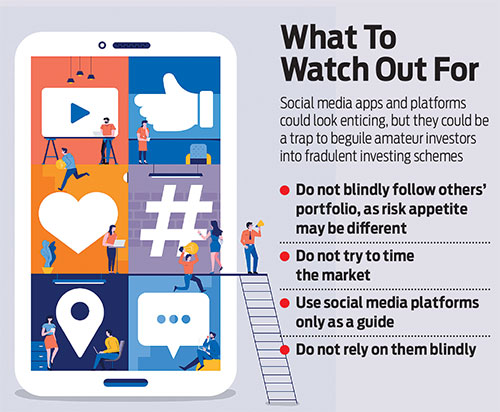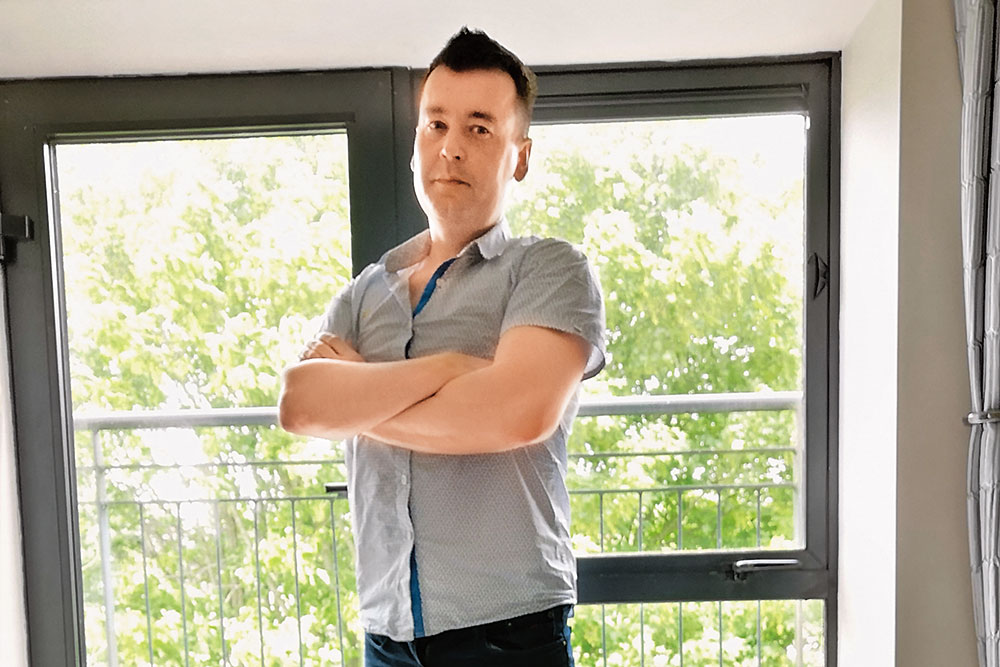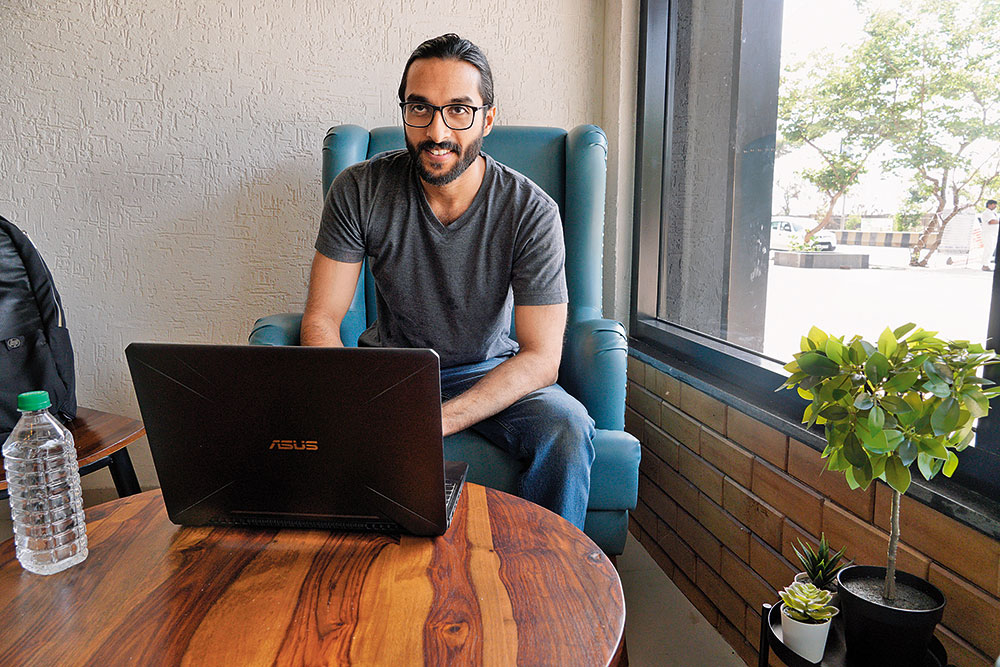The entreprenuer initially used his demat account to invest in mutual funds, and then decided to trade in stocks. He says he faced the challenge of seeking the right advice. He spent time on YouTube and Twitter, and came across a lot of posts on multi-bagger stocks and penny stocks, but stayed away.
“I joined some discussion forums for advice as some of these had experienced traders. That helped me gather knowledge.”
***
That one should invest in market dips is common knowledge now. So, when the market dipped in April 2020, many queued up to make their first equity investments, and the number of new demat accounts increased.
But what is still uncommon is the skill to pick the right stock. Thus, most first-time investors look for investment advice or skillsets which can help them make the right decisions.
While the earlier generation depended mostly on friends and family for investment advice, the Gen Z and millennials have a host of options. Forever hooked to their smartphones, they find it easy to search for advice on the Web rather than going to their uncles and aunts, most of whom may anyway not be very well-versed with stock investing. Instead, a simple search on stock market investment advice on any of the social media platforms—from Facebook to YouTube to Telegram channels—throws up thousands of results.
But navigating through countless stocks tips, differentiating between the fake and the genuine, and gathering trustworthy advice and knowledge is no piece of cake. That’s where social investing or at times the dark side of social investing comes in.
What Is Social Investing?
Social investing has been in existence since ages. Earlier, it involved friends and family. Now, the onset of technology has broadened the universe to include traders and experts from all over the world.
Social investing apps and platforms help call out the fake from the genuine, as they admit and allow verified professionals to share their strategies and advice.
They allow investors to chat and communicate with other senior traders and like-minded investors, and gather knowledge and information about trading and investment in a secured environment.
You will find relevant posts and portfolios of other experienced traders, and even real-time news, besides investing suggestions.
In Europe and the US, people can even copy a professional’s entire trade as and when required. US investment app eToro has a dedicated social investing portal where users can check the portfolios of verified traders. In India, this is not allowed yet.
“Social investing is a broad term, but I feel it is a smaller closed group of people interacting with each other on a common platform. They could be interacting about the content itself, i.e., stock fundamentals, profit and loss statement analysis, key ratios, technical indicators, or market trends. They could also share their trading methodology and portfolios to educate new investors about stock or other assets trading,” says Vasanth Kamath, founder and CEO, Smallcase, an investment app.

The Learning Curve
In financial year 2020-21, 14.2 million new demat accounts were opened. In FY20, this number was 4.9 million. The total number of demat accounts in India has swollen to 89.7 million, as on March 31, 2022). One of these new accounts opened in 2020 belongs to Utkarsh Shetty, 32, who is an entrepreneur based in Navi Mumbai, and now actively trades in stocks.
“Markets hit big lows during the Covid period, which made them very attractive. The Securities and Exchange Board of India (Sebi) eased KYC norms and allowed a lot of initiatives that paved the way for quick online opening of trading and demat accounts. Both these factors combined with a young digital savvy population sitting at home led to massive spurt in account opening.” says Sandip Raichura, CEO, retail broking and distribution, Prabhudas Lilladher.
Initially, Utkarsh used his demat account to invest in mutual funds, but in March 2021, he decided to start trading in stocks. But the challenge was seeking the right advice.
“When I started investing, I used to see a lot of YouTube channels and Twitter posts about multi-bagger and penny stock tips. However, I stayed away from them,” says Utkarsh. In the past few years, Sebi has cracked down on several social media platforms for spreading misinformation, and misleading investors.
Instead, Utkarsh joined some groups that were discussion forums and disseminated know-how and advice. Though he didn’t find all of them useful, “some had genuine and experienced stock traders who regularly posted about stocks, funds or investing principles, which helped me gather information and knowledge about trading”. Utkarsh still uses these groups to find out about the latest stock trends and gather information.
Says Kamath: “Social investing should be looked at as something where new stock investors and traders can learn from senior and experienced traders, and investors in the market. This should help new investors develop the habit of stock researching, looking out for news, developing trading strategies by asking about that in the forum and chat rooms, rather than simply copying what the next person is doing.”
When Ireland-based Enda Cusack, 38, owner of YouTube Channel Enda Trading, and a member of eToro, started trading in stocks in 2020, he didn’t know how to look at the fundamentals of a stock, and which one to choose.
“I opened an account with eToro and saw experienced and verified traders posting about their stock investing methodology and techniques. It was a learning experience for me. I started to follow some people there and studied their trading patterns, and tried to trade using their strategy with eToro’s virtual cash,” says Enda. Using virtual cash ensured he did not put his capital at risk. Enda still uses this feature to try out different trading styles before executing them in the market.
“Some experienced traders post about their trading methodology daily, which has helped me become a better trader compared to what I was two years ago, when I opened my account,” says Enda.

Enda Cusack, 38, Ireland
The owner of the YouTube channel, Enda Trading, started trading in stocks in 2020. But as he did not know how to look up the fundamentals of a stock, and which one to choose, he opened an account with eToro, an Israeli investment app, and learned from experienced and verified traders who posted about their investing methodology and techniques.
“I followed them, studied their trading pattern, and tried to trade using their strategy with eToro’s virtual cash. That saved my capital from being at risk.”
Things To Watch Out For
Trading Style and Suitability: While the experienced trader’s profile may be verified, it may not suit an investor’s risk appetite. The portfolio could turn out to be too volatile or risky for the investor. “Every individual need, requirement and goals are different. Your friends or people in social media may give general recommendations, which are not tailor-made to your specific needs. They do not know your existing portfolio, future cash flow needs, risk-taking capacity or number of dependants,” says Parul Maheshwari, a certified financial planner.
It is also important to look at your overall portfolio before making any decision. “Many a times, people end up investing in different products, which becomes difficult to manage, as they do not get a holistic view of their portfolio, based on their asset allocation needs,” adds Maheshwari.
Behavioural Risk: Learning from someone and experiencing it in real life are two different things. A social investing platform may give an investor access to quality trading and investing principles, but they may not be able to patiently follow through with it due to the difference in behaviour.
“An investor needs to have a plan, and then stick with it. There was a survey a few years back about investors earning less returns than the funds they invested in. This was because investors either tried to time the market, or sold and bought the fund at the wrong time. Had they invested, regardless of the ongoing noise and news, their returns would have been the same as the funds. In social investing, an investor may get access to a verified trading portfolio, but when the market becomes bearish, it may test the investor’s nerves. If they panic and sell at that time, their returns will be significantly impacted,” says Deepesh Raghaw, founder, PersonalFinancePlan, a Sebi-registered investment advisor.
Accountability: Social investing platforms should be used at best as a guide only. It’s your responsibility to research and decide on investment based on your individual preferences and circumstances. The expert whose portfolio you copy or advise you follow cannot be held accountable.
“Social Investing apps or platforms can make an investor learn more about stocks and trading, but ultimately, they will have to execute the trade. So, when they face a loss by checking someone’s portfolio and face a loss, they cannot demand to be compensated for the loss. The accountability will always rest with the investor who is initiating the trade,” adds Raghaw.
Just because experienced traders are giving out advice does not mean it will be suitable for you too. After gathering information from social investing groups, Utkarsh does his own research before investing in any stock. You should do so, too!
neelanjit@outlookindia.com

